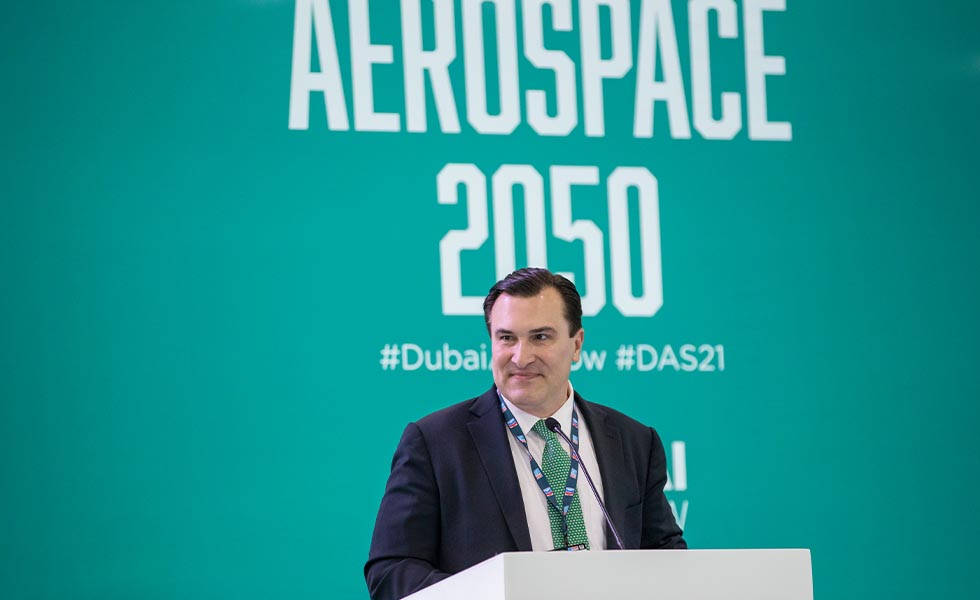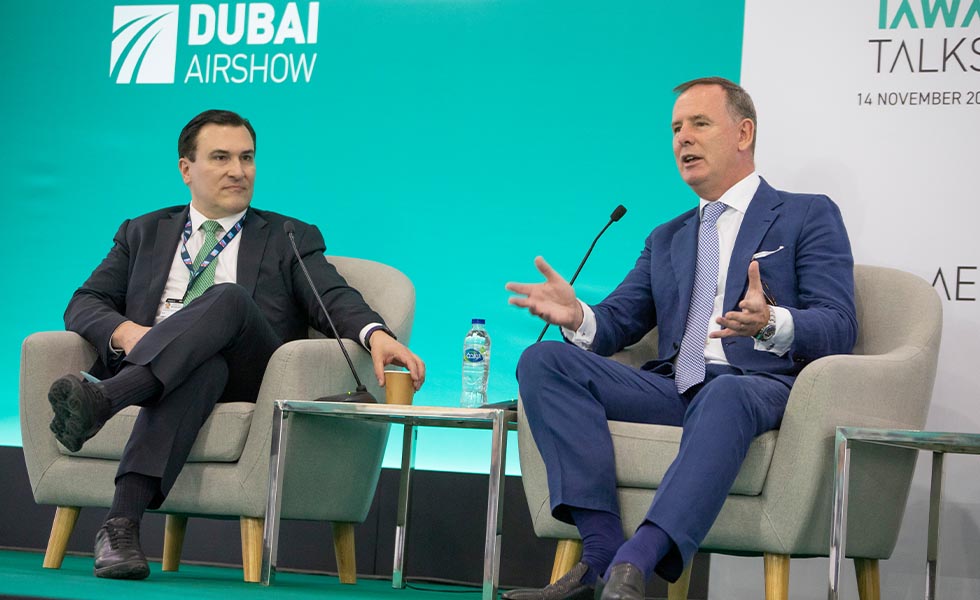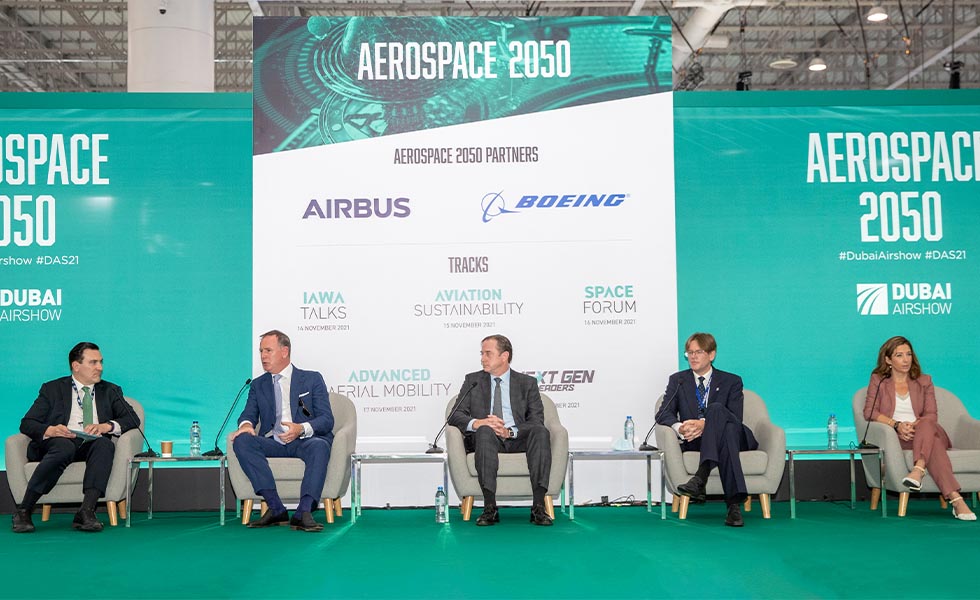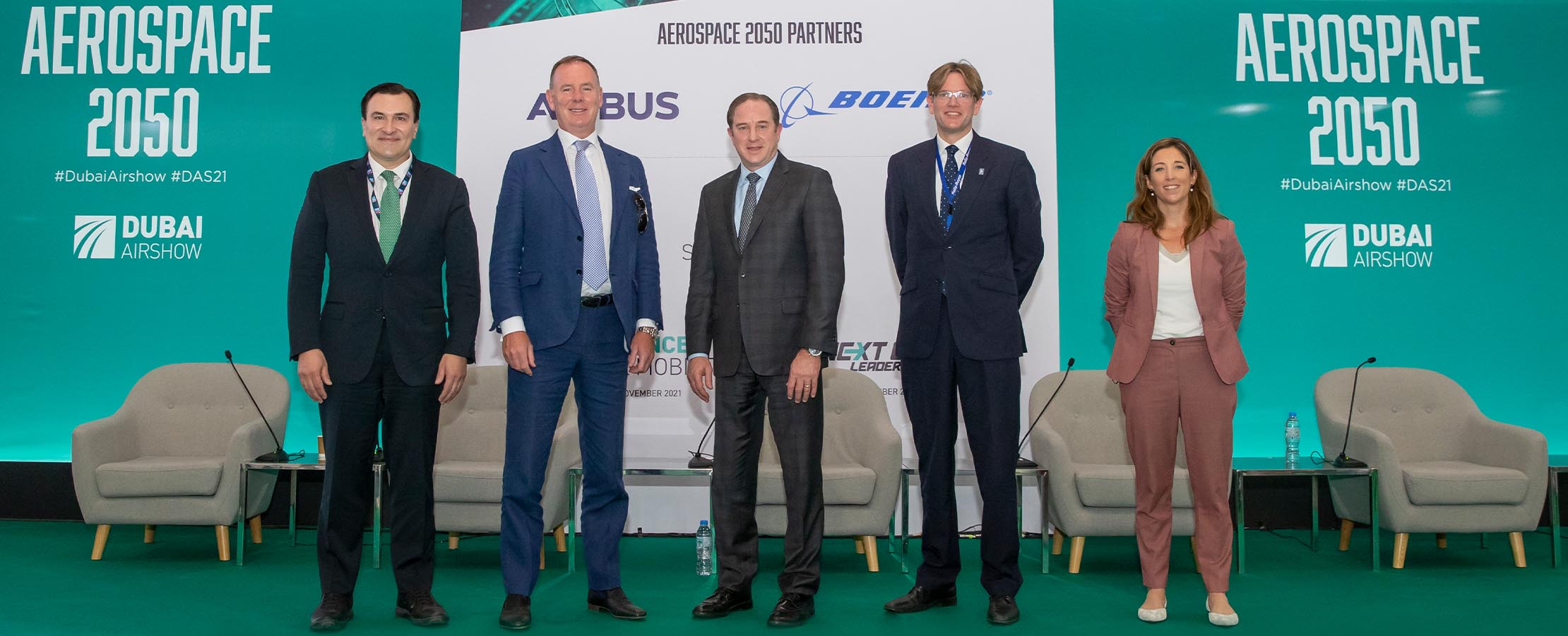Jet Zero: Major Aviation Firms Aim High
Aviation is facing a tougher challenge than most industries when it comes to the two issues that dominate today: decarbonization and the Covid-19 pandemic. The industry must adapt, innovate, and collaborate in order to thrive.
Summing up the situation at a recent keynote panel at the Dubai Airshow, IEF Secretary General Joseph McMonigle explained: "Not only does the aviation industry face demand uncertainty, but it is also one of the most hard-to-abate sectors when it comes to sustainability and decarbonization."
Despite the scale of the challenge, speakers representing the biggest names in the industry – including Rolls-Royce, Boeing, and Airbus – demonstrated preparedness for the transition, saying that the pandemic has given the sector an opportunity to accelerate its sustainable pathway.

The fuel efficiency trajectory
The aviation industry has been on the path to decarbonization for decades. Engineers have worked to optimize fuel efficiency with each new generation of aircraft. Simply by securing 20-25 percent improvements in fuel efficiency with each generation, the industry's CO2 emissions per passenger have fallen by more than 50 percent since 1990. It has always been quick to integrate and normalize fuel efficiency measures, such as winglets.
In a demonstration of fuel efficiency progress, a Boeing 'Greenliner' operated by Etihad Airways recently completed a London-Abu Dhabi flight with 72 percent improvement in fuel efficiency compared with 2019 figures, according to Etihad CEO Tony Douglas.
Engine makers continue to optimize gas turbine and jet engine efficiency, but this alone will never get the industry to net zero.

The shift to sustainable fuel
Sustainable aviation fuel (SAF) is another key to low-carbon flight. SAF offers reductions in CO2 emissions up to 80 percent compared with traditional jet fuel. It is expected to act as a bridge for the aviation industry while zero-carbon technologies such as long-range electric aircraft are developed, matured, and certified. Speaking in Dubai, the director of Rolls-Royce Electrical, Rob Watson, reiterated the group's commitment that by 2023, all its current engine types will be compatible with 100 percent SAF, commenting: "Clearly SAF is the critical way to get to scale to deliver an alternative to jet."
Although today's engines can operate on approximately 50 percent SAF mixed with traditional fuel, the reality is that sustainable fuel represents only 0.1 percent of aviation fuel used. At present, supply is extremely limited and expensive compared with conventional fuel, and there is a lack of supporting infrastructure. Seizing the potential of SAF will require policy support to render it economically viable, improve global accessibility, and establish a regulatory framework.
Airlines and airports will also need to form partnerships beyond the aviation industry, such as with energy companies, to support the rollout of supporting infrastructure. "We need that energy transition to help reduce [emissions of aviation] and to get to that net-zero pathway," said Julie Kitcher, executive VP communications and corporate affairs at Airbus. "So, this is going to be dependent on an unparalleled act of co-operation and collaboration to get us there."
New flight technologies
As the world strives towards carbon neutrality by 2050, the aviation industry faces the long-term challenge of shifting entirely towards net-zero CO2 flight. This cannot rest on the incremental improvements that it has always made towards sustainability; it requires the development and adoption of disruptive technologies such as battery- and hydrogen-powered aircraft.

"There is not going to be one thing. [SAF, electric, and hydrogen-powered aircraft] are all going to phase in over time," explained Chris Raymond, Boeing's chief sustainability officer. "Just like this industry always has, we're going to take these innovations once they're proven and can be safely certified, and we're going to fold them into current projects and our next-generation projects."
There is excitement around the prospect of 'Jet Zero'. Airbus has ambitiously committed to producing its first zero-emission aircraft by 2035, with Kitcher emphasizing: "It's not SAF or hydrogen; it's SAF and hydrogen." Rolls-Royce, meanwhile, is investing heavily in hydrogen R&D. It is already flying five different test aircraft which use four different hydrogen technologies and exploring hydrogen as a possible feedstock for SAF.
Watson said he sees "huge opportunities around electrification" for Rolls-Royce, including for battery-powered short-range flights, or in technology to extend the range of electric batteries. Airbus, Rolls-Royce and Boeing are also all exploring the potential of hybrid electric planes taking to the skies.
While maximizing fuel efficiency and SAF access are the most immediate sustainability priorities for aviation, the industry is already preparing for the future of flight.






